Join us this fall for two exciting exhibitions at the UT Galleries! Eastern Band Cherokee artist, Rhiannon Skye Tafoya will have a solo exhibition at the Ewing Gallery of Art + Architecture. Tafoya has also curated an exhibition of work by Cherokee artists, Jakeli Swimmer, Michelle Long, and Keli Gonzales for the UT Downtown Gallery.
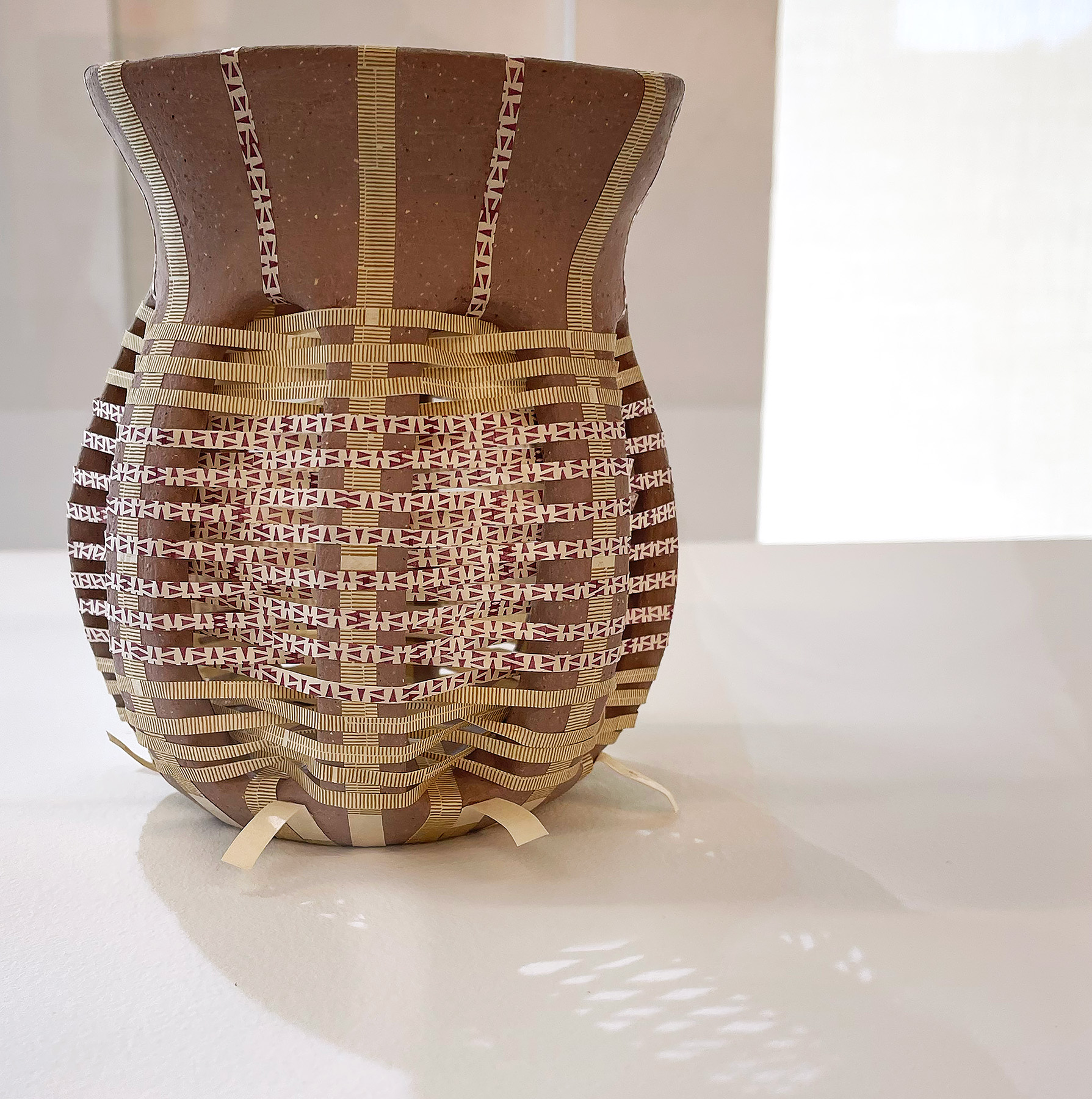
RHIANNON SKYE TAFOYA
AUGUST 20 – OCTOBER 14, 2025
Ewing Gallery of Art + Architecture | UT Campus
The art that I create reflects and honors the basket and the process of making a basket. Since I am from two different tribal nations, I have learned twice the knowledge of basketry plants from two very different landscapes. This traditional knowledge has taught me the importance of my homelands and the reciprocal relationship with our plant relatives that inherently evolves out of basketmaking. I carry the knowledge of plants and the teachings of basketry into my contemporary practice of printmaking, bookbinding, and paper-weaving as each medium has intentional qualities in their storytelling much like the plants and basketmaking processes.
Rhiannon Skye Tafoya (b. 1989) is an interdisciplinary artist from the Eastern Band of Cherokee and the Santa Clara Pueblo Tribes. She earned a BFA in printmaking from the Institute of American Indian Arts in Santa Fe, NM. and an MFA in print media from Pacific Northwest College of Art in Portland, OR. She employs printmaking, digital design, and basketry techniques in creating her artist’s books, prints, and paper weavings. Both of her tribal heritages, cultures, and lineages are manifested in her two- and three-dimensional artworks that range in size from a few inches to a few feet. She is inspired by her family history of basketry and observing her father and maternal grandmother weave baskets from red willow, honeysuckle vine, and white oak. She creates to preserve, archive, and share personal, familial and tribal stories.
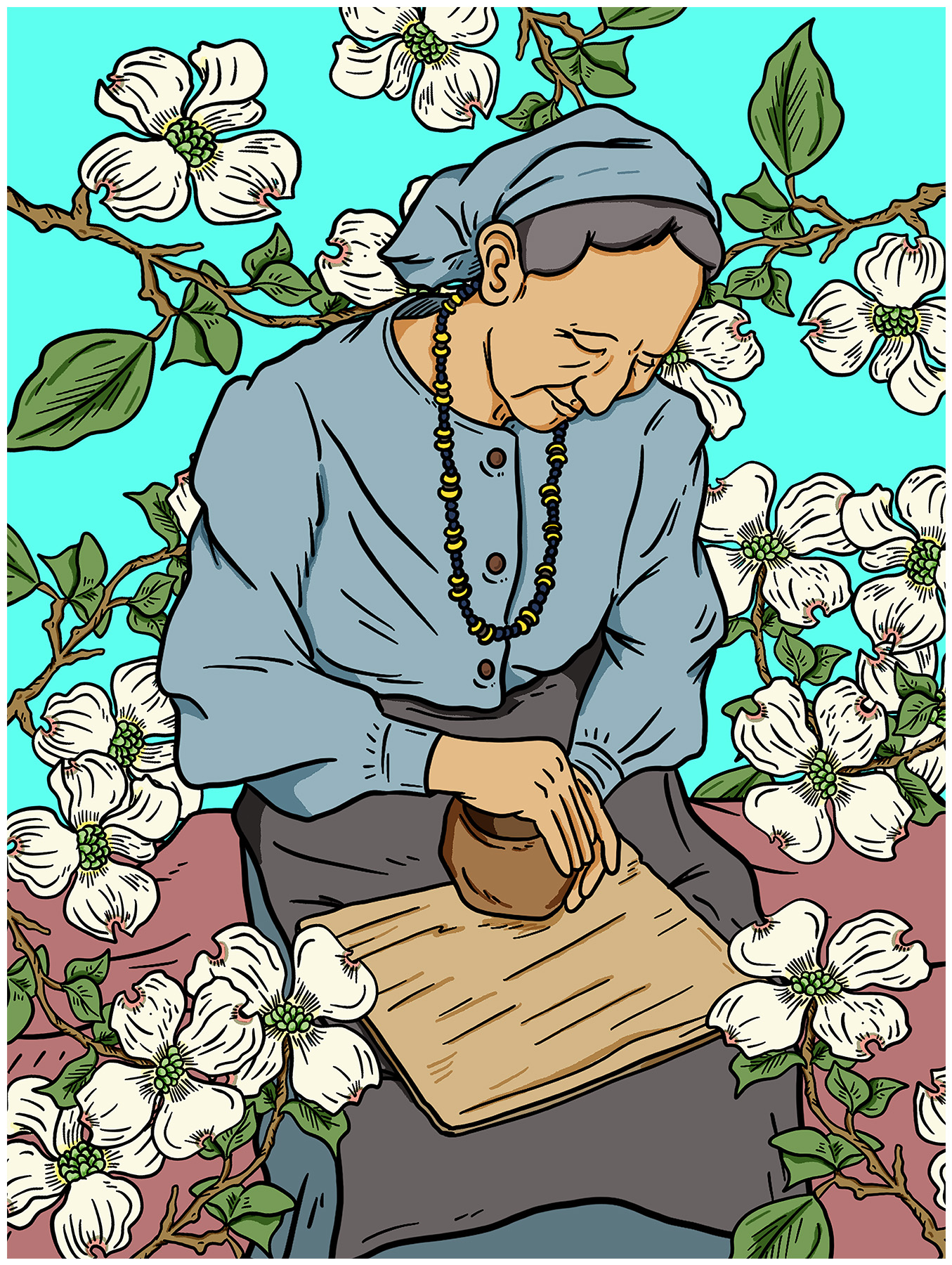
DIRTY ONES—THE PEOPLE OF GADUHVI-TSU’NI’GA’DA’HA
Curated by Rhiannon Skye Tafoya
AUGUST 30 – OCTOBER 18, 2025
UT Downtown Gallery | 106 S. Gay Street
downtown.utk.edu
What does it mean to be a Cherokee person? There are a lot of nuances surrounding this question, as there always will be. However, Jakeli Swimmer, Michelle Long, and Keli Gonzales directly show us the utmost important aspects of being a Cherokee person. In each of their art practices, details of Cherokee Language, Cherokee Community, Cherokee Lineage, and Cherokee History and Politics emerge as different entities to deliver the answer to the previous question. Their art speaks of their daily lives, in which they are committed to and immersed in Cherokee Language, Culture, and Community.
Amanda Swimmer | Jakeli Swimmer
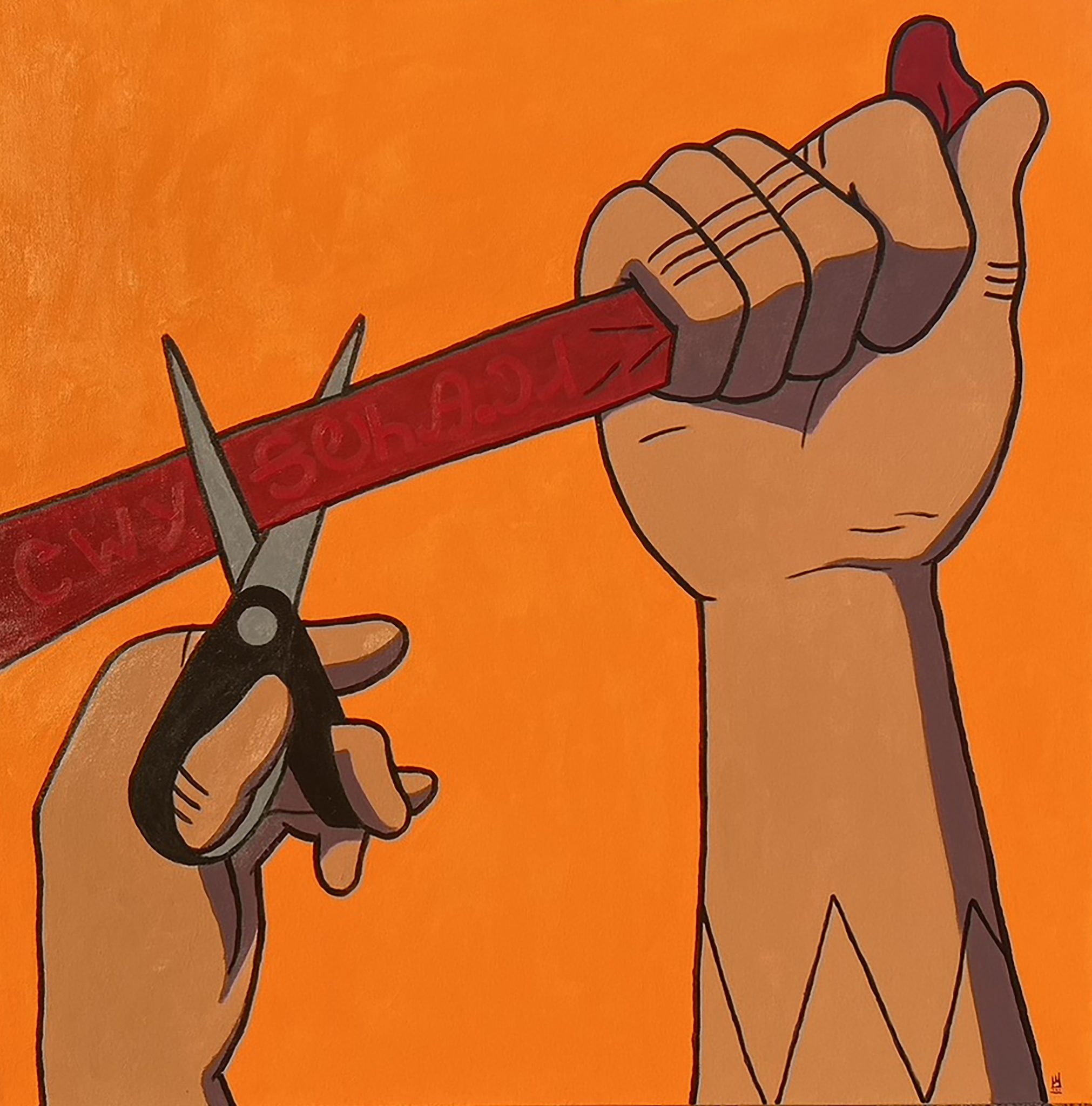
FIRST FRIDAYS
SEPTEMBER 5, OCTOBER 3 | 5-9PM
UT Downtown Gallery | 106 S. Gay Street
All First Friday events are free and open to the public. We hope you’ll be able to make it to the gallery.
Not caring about the state of your language is like cutting out your grandmother’s tongue. | Keli Gonzales
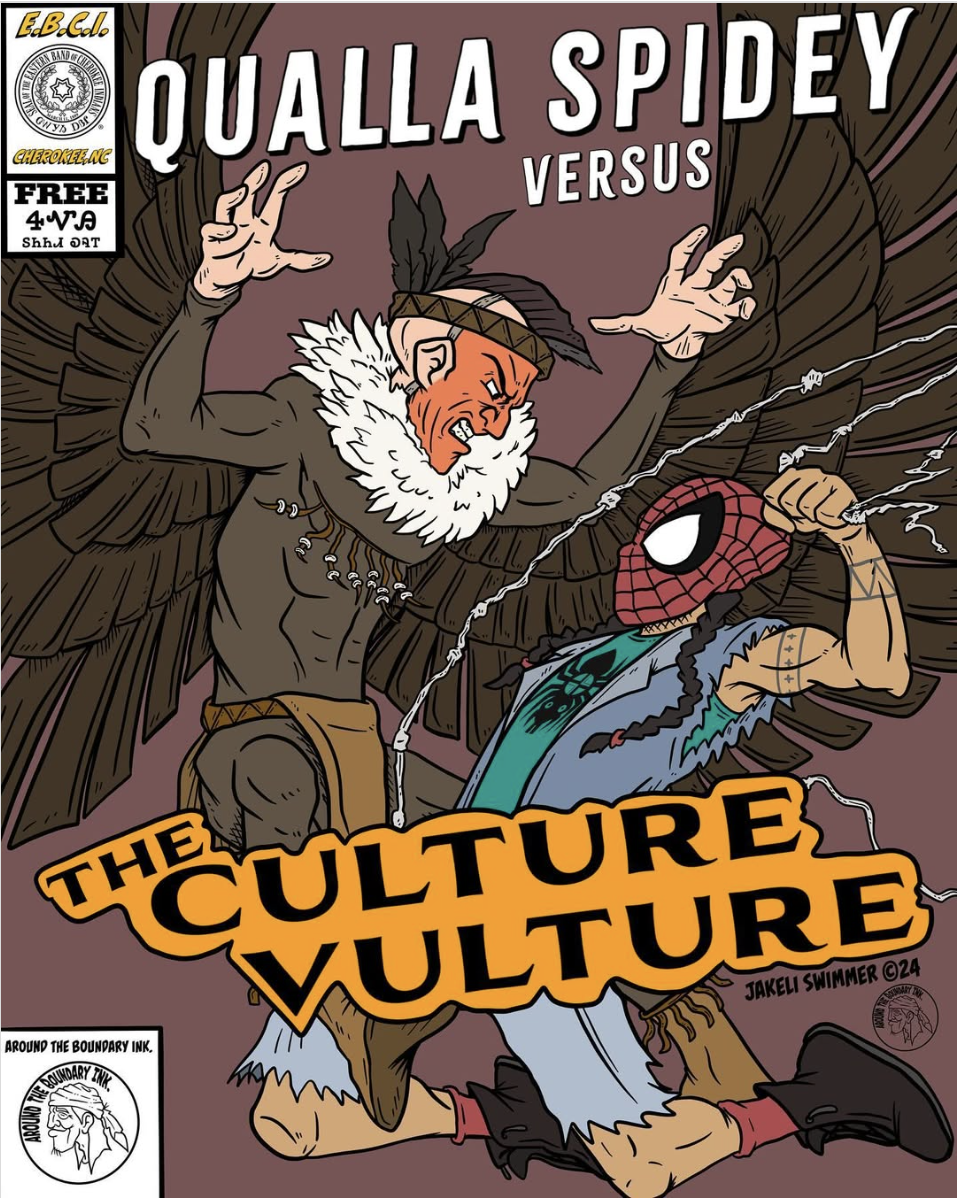
CARTOONING + CHEROKEE HISTORY WORKSHOP
MONDAY, SEPTEMBER 29, 5:30 – 7PM
UT Downtown Gallery | 106 S. Gay Street
Join featured artist Jakeli Swimmer for a workshop on cartooning and Cherokee history. Attendance will be capped at 20 participants. Register to attend at the link below.
Qualla Spidey versus the Culture Vulture | Jakeli Swimmer
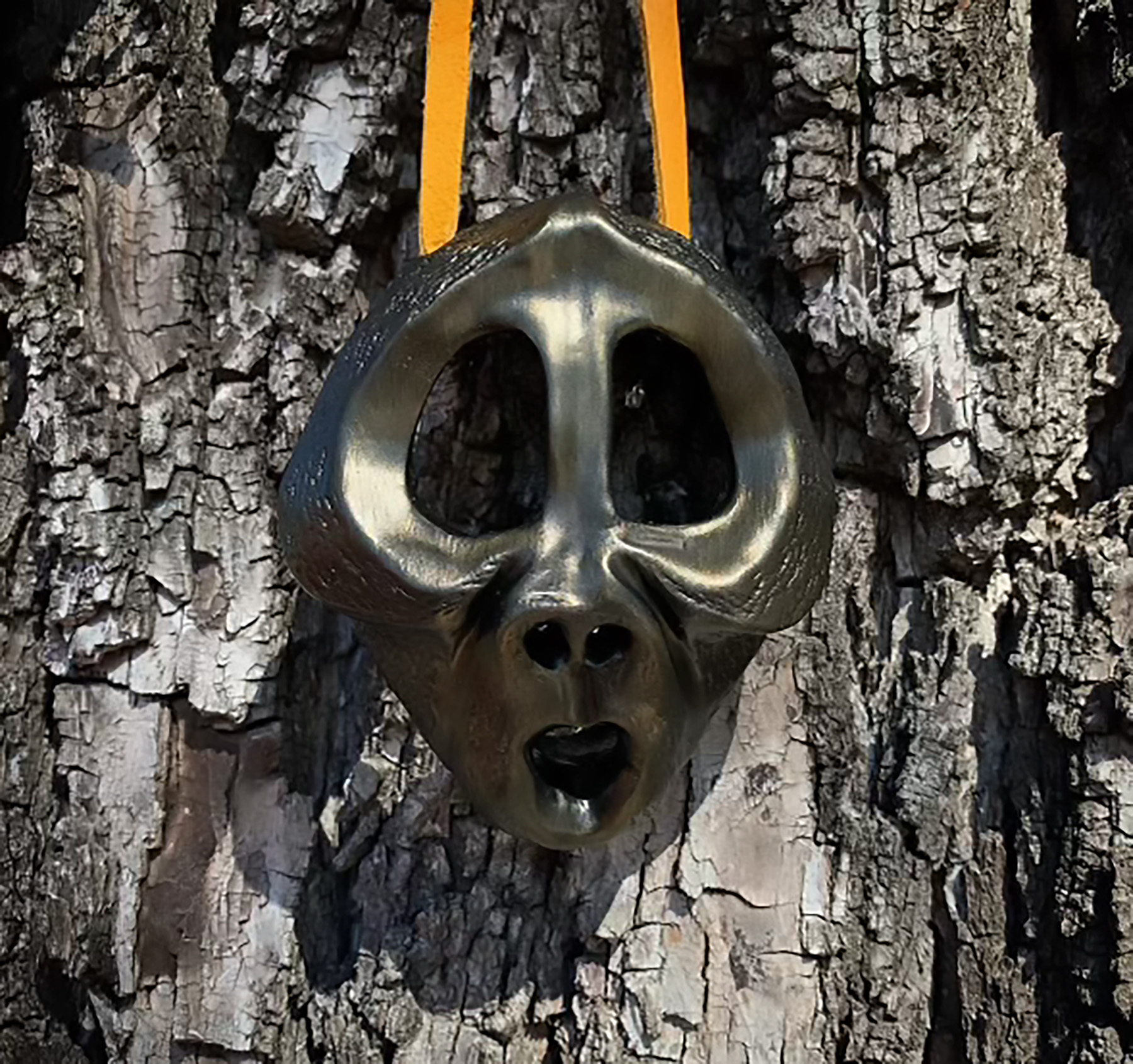
ARTISTS PANEL DISCUSSION
TUESDAY, SEPTEMBER 30, 5:30 – 7PM
McCarty Auditorium | Art + Architecture Building, UT Campus
Join us for a conversation between exhibiting artists Rhiannon Skye Tafoya, Jakeli Swimmer, and Michelle Long.
ᏎᏗ(Walnut) | Michelle Long
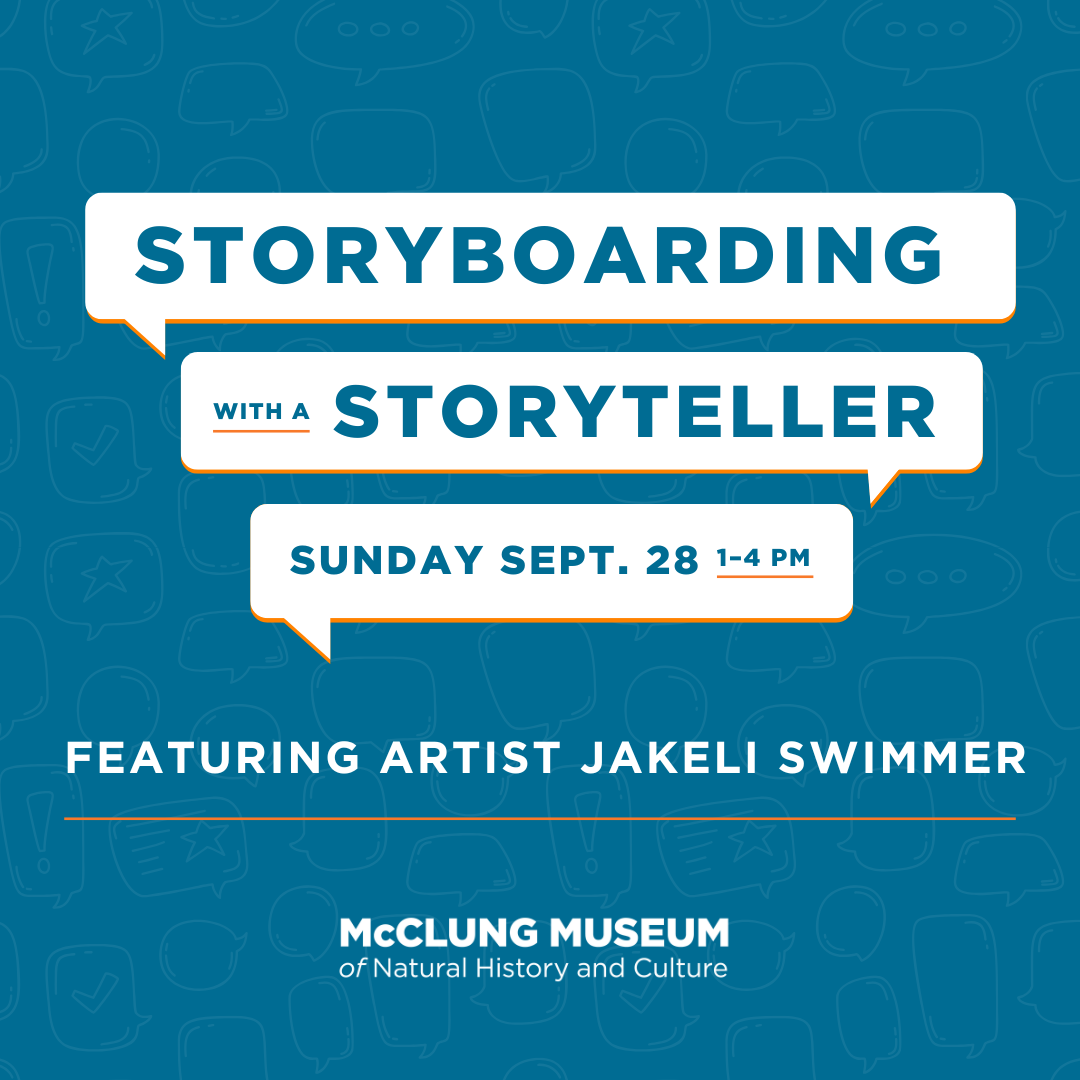
MCCLUNG FAMILY FUN DAY
SUNDAY, SEPTEMBER 28, 1-4pm
McClung Museum of Natural History and Culture
Storyboarding with a Storyteller | Join UT Downtown Gallery exhibiting artist, Jakeli Swimmer, as he leads a drop-in mini workshop on storyboarding as part of Family Fun Day at the McClung Museum on the UT campus.
Click here for more information

This exhibition and related programming are supported in part by a grant from the Tennessee Arts Commission’s Arts for All program, with co-sponsorship from UT’s Denbo Center for Humanities and the Arts, the Appalachian Justice Research Center, the Department of Sociology, and the School of Art Programming Committee.